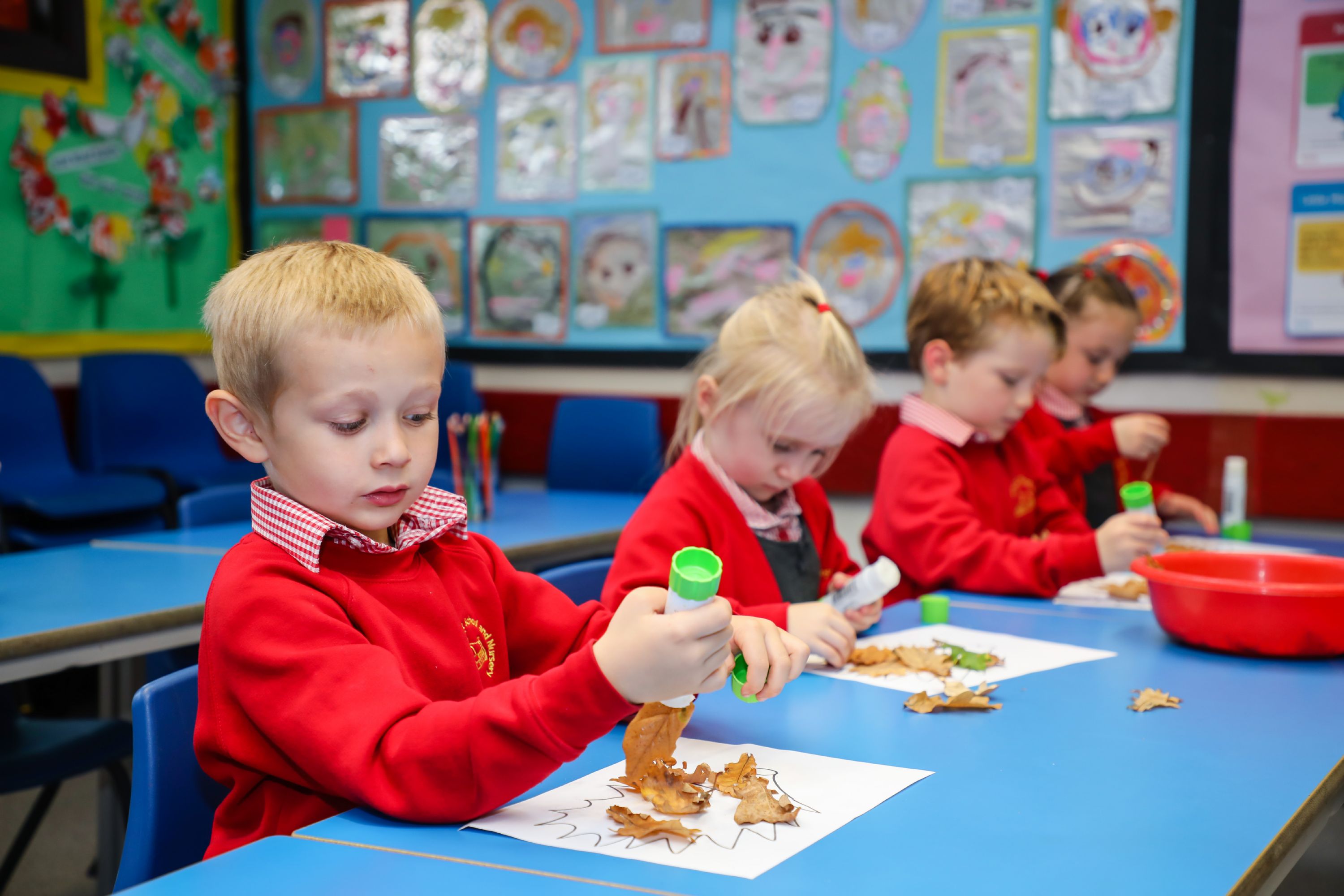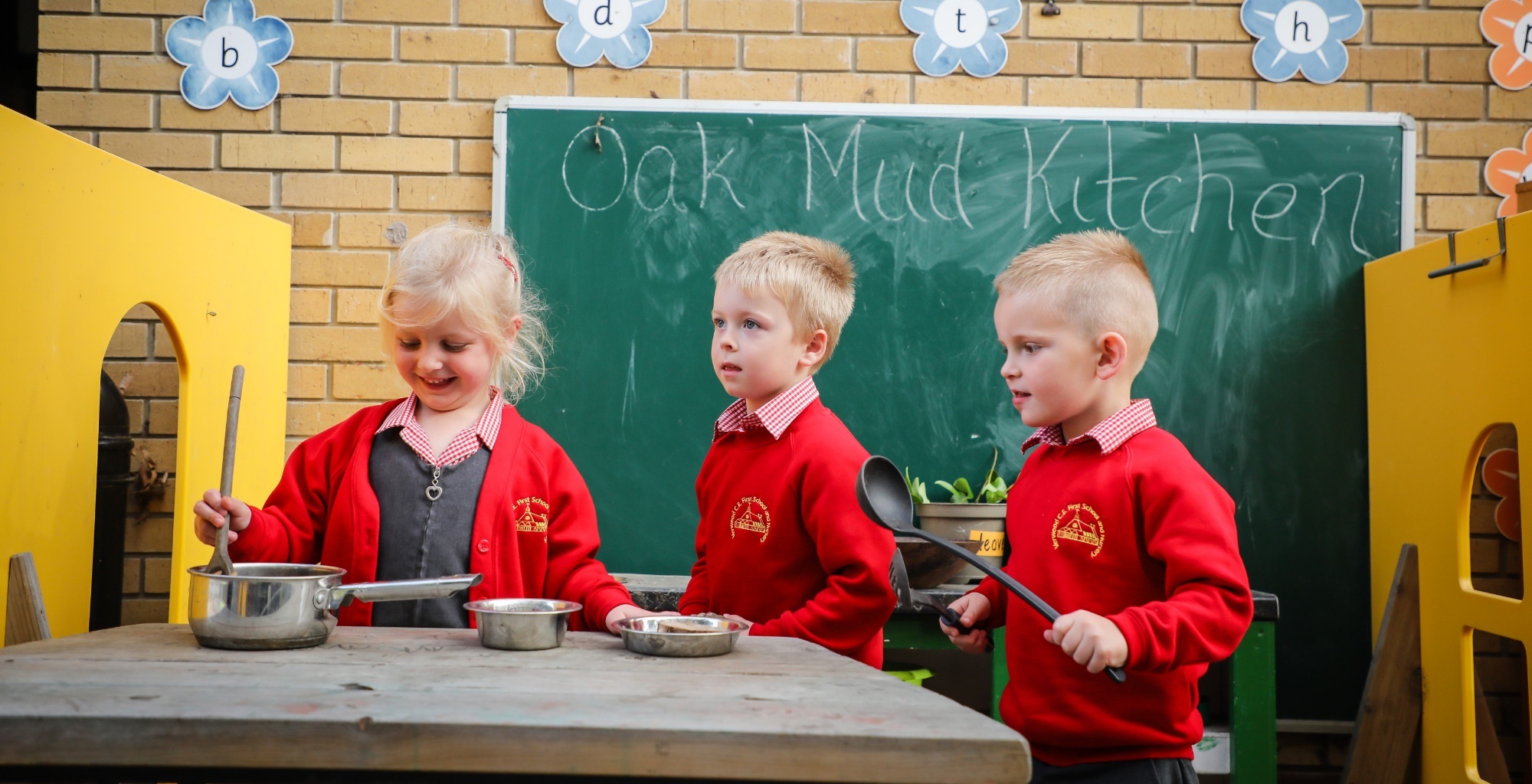Mathematics
Maths Curriculum Statement
Intent
Mathematics is an important creative discipline that helps us to understand and change the world. We want all pupils at Verwood First School and Nursery to experience the beauty, power and enjoyment of mathematics and develop a sense of curiosity about the subject with a clear understanding. It is our aim for all children to succeed at Verwood First, and as a result, for children to enjoy mathematics and become life-long learners in the subject.
We believe all children can achieve in mathematics, and teach for a secure and deep understanding of mathematical concepts through manageable steps.
We are committed to ensuring that children are taught a balanced curriculum with clear progression of skills through each year group and across the school. Key knowledge and skills are revisited regularly allowing repetition to embed learning.
We aim for all pupils to:
-
Use concrete, pictorial and abstract approaches to develop their depth of understanding mathematical concepts.
-
Become fluent in the fundamentals of mathematics so that they develop conceptual understanding and the ability to recall and apply knowledge rapidly and accurately.
-
Be able to solve problems by applying their mathematics to a variety of problems with increasing sophistication, including in unfamiliar contexts and to model real-life scenarios.
-
Reason mathematically by following a line of enquiry and develop and present a justification, argument or proof using mathematical language.
-
Have an appreciation of number and number operations, which enables mental calculations and written procedures to be performed efficiently, fluently and accurately, to be successful in
Implementation
Our maths curriculum at Verwood First School and Nursery is taught through the Maths No Problem programme from Year 1. This approach is based upon the research from Bruner (Concrete, Pictorial, Abstract approach), Vygotsky (rich discussion & peer talk), Piaget (thinking processes rather than outcomes), Dienes (exploration before structure and a variety of methods) and Skemp (making links). Each topic is studied in depth and the teacher does not move to the next stage until all children demonstrate that they have a secure understanding of mathematical concepts.
Children in EYFS follow the White Rose scheme of learning which has very similar underlying principles to Maths No Problem. They use the NECTM MAstering Number programme to deliver the number aspect of the program of study.
In all year groups, pupils are given time to think deeply about the maths and really understand concepts at a relational level rather than as a set of rules or procedures. This inclusive approach, and its emphasis on promoting multiple methods of solving a problem, builds self-confidence and resilience.
Pupils who grasp concepts quickly are challenged with rich and sophisticated problems within the topic. Those children who are not sufficiently fluent are provided additional support to consolidate their understanding before moving on.
We are passionate about delivering this approach in mathematics, which ensures our children are confident mathematicians, showing a deep understanding of concepts and fluency in number.
In order to advance individual children’s maths skills in school and at home, we also set weekly home learning through SumDog that is based on a topic they have learnt in school or as a pre-teaching tool to prepare them for their next topic. We also utilise Times Tables Rock Stars for multiplication practise, application and consolidation in KS2.
Through our teaching we continuously monitor pupils’ progress against expected attainment for their age, making formative assessment notes where appropriate and using these to inform our teaching. We also assess children on their knowledge of the previous year group at the start of a new topic to ensure there are no gaps in their understanding before moving on to current content appropriate for their age. The main purpose of all assessment is to always ensure that we are providing excellent provision for every child.
As staff, and learners ourselves, we continuously strive to better ourselves and frequently share ideas and activities that have been particularly effective. We take part in training opportunities and have been lucky enough to work alongside Primary Mastery Specialists funded through the Strategic School Improvement Fund (SSIF) and also with colleagues in the Jurassic Maths Hub. Through both of these projects we have been able to work in Teacher Research Groups (TRGs) actively trialling new ways of teaching and learning in our classrooms, before sharing this learning in staff meetings and training days.
Impact
The impact on our children is clear: progress, sustained learning and transferrable skills. As all aspects of Maths are an integral part of the curriculum, pupils know how and why maths is used in the outside world and in the workplace, children know about different ways that maths can be used to support their future potential and they have an ability to demonstrate a quick recall of facts and procedures. They have an understanding that mathematical concepts or skills are mastered when they can show it in multiple ways, using the mathematical language to explain their ideas, and can independently apply the concept to new problems in unfamiliar situations.
Pupils use acquired vocabulary in maths lessons. They have the skills to use methods independently and show resilience when tackling problems. Children show a high level of pride in the presentation and understanding of the work.
Through discussion and feedback, children talk enthusiastically about their maths lessons and speak about how they love learning about maths. They can articulate the context in which maths is being taught and relate this to real life purposes. Children show confidence and believe they can learn about a new maths area and apply the knowledge and skills they already have.
All children secure long-term, deep and adaptable understanding of maths which they can apply in different contexts.







